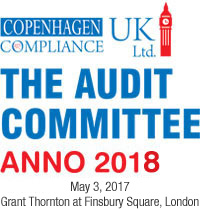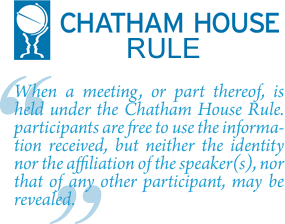
The Annual Nordic Third-Party Compliance, Risk Management & Oversight Summit
|
Join your colleagues and us at The Annual Nordic Third-Party Compliance, Risk Management & Oversight Summit. The agenda focuses on how companies are building robust third-party compliance programs and improving decision making, efficiencies and outcomes. The conference will provide fresh perspectives and guidance on evolving market dynamics, analyse third compliance with keynote speeches and cases. WHEN March 16th, 2017 8:30-16:00 WHERE During the 10th annual Nordic GRC Summit REGISTRATION. Fees: 4.500,00 dkk. or €590,00 + VAT TO REGISTER Click Here WHO SHOULD ATTEND
Improper oversight of your third-party relationships and compliance can cost your company millions of dollars and loss of reputation. Newspaper and social media headlines continue to report stories of human rights violations, corruption, unethical business practices and data breaches that lead to a business focus on enhanced third-party risk management, stronger oversight, and heightened controls. AGENDA-AT-A-GLANCE
Two workshop sessions on the 3rd party Governance, Due Diligence and Compliance Moderated and conducted by Henrik Frøssling, ex. Risk and Compliance Manager of Volvo Part A: Do we always know whom we do business with?Continued media exposure on third party compliance defaults reminds us of the importance of knowing whom we choose to do business with and the dire consequences related to bad publicity, directly impact brand and reputation. At the first part of the workshop we focus on;
We take a risk-based approach, using own resources on the biggest third party risks, various background checks and preventive actions. The financial upside of these activities should not be underrated. Part B: How to ensure that our business partners are mature enough on requirements in the areas of GRC regarding Code of Conducts & Business Ethics?The board, senior executives and management teams must be aware of the internal and external requirements on customers Code of Conduct for suppliers to establish a prudent tone-at-the-top. These requirements are more complex to have a dialogue on risks and responses so that the staff can proclaim; yes we are compliant with Code of Conducts & Business Ethics?
During both, we examine the different consequences of third party non-compliance and find sustainable solutions to the GRC business opportunities, direct and indirect cost and reputation risk so that these risks are not to be underestimated nor neglected. |












